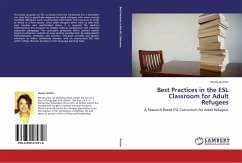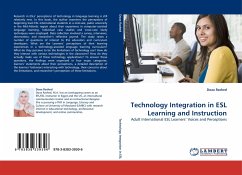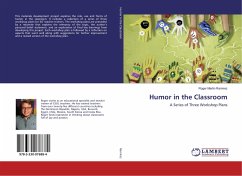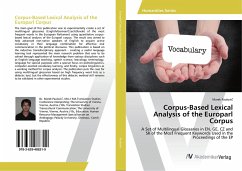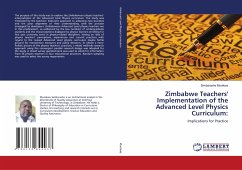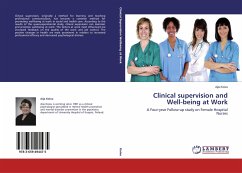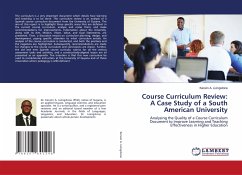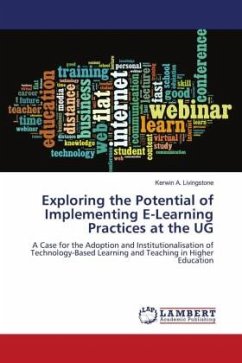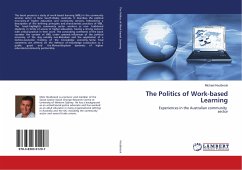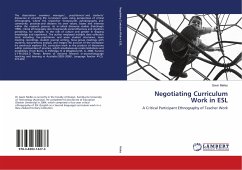
Negotiating Curriculum Work in ESL
A Critical Participant Ethnography of Teacher Work
Versandkostenfrei!
Versandfertig in 6-10 Tagen
52,99 €
inkl. MwSt.

PAYBACK Punkte
26 °P sammeln!
The dissertation examines managers', practitioners' and students' discourses in enacting ESL curriculum work using perspectives of critical ethnography, where the researcher foregrounds autobiography and community practices and declares his own values, biases and interests within the research process. As in critical discourse studies (Fairclough 1995), critical ethnography also foregrounds social influences and injustices pertaining, for example, to the role of culture and gender in shaping knowledge and experience. The author employed multiple data collection tools including five practitioner...
The dissertation examines managers', practitioners' and students' discourses in enacting ESL curriculum work using perspectives of critical ethnography, where the researcher foregrounds autobiography and community practices and declares his own values, biases and interests within the research process. As in critical discourse studies (Fairclough 1995), critical ethnography also foregrounds social influences and injustices pertaining, for example, to the role of culture and gender in shaping knowledge and experience. The author employed multiple data collection tools including five practitioner and seven student interviews, team meeting recordings, student journal writing, focus group meetings with students, documentary analysis, and images.The account of the workplace he constructs explores ESL curriculum work as the product of discourses within communities of practice, which simultaneously create limitations and possibilities. (from Burns, A. Paltridge, B. & Wigglesworth, G. 2008, 'Surveys of Ph.D/Ed.D Theses: Review of doctoral research in second-language teaching and learning in Australia (2003-2006)', Language Teacher 41(2): 273-293)



